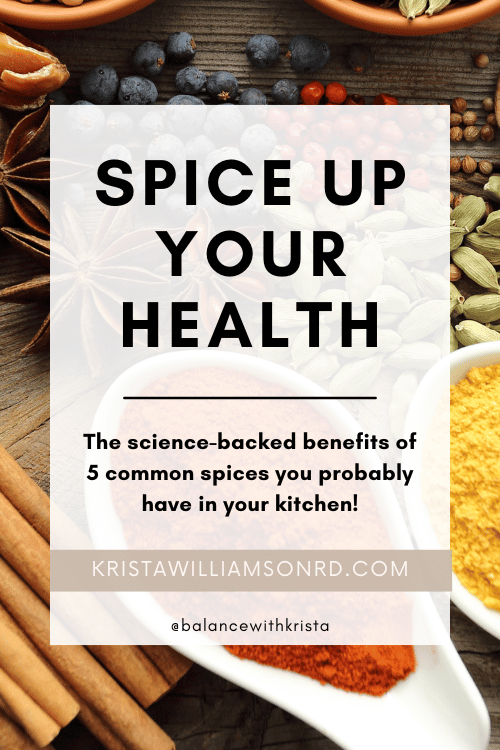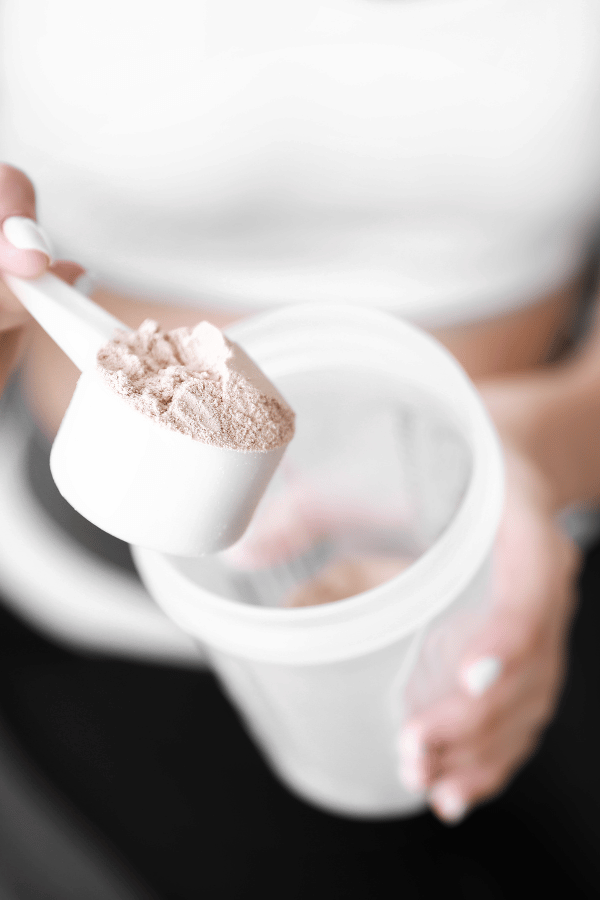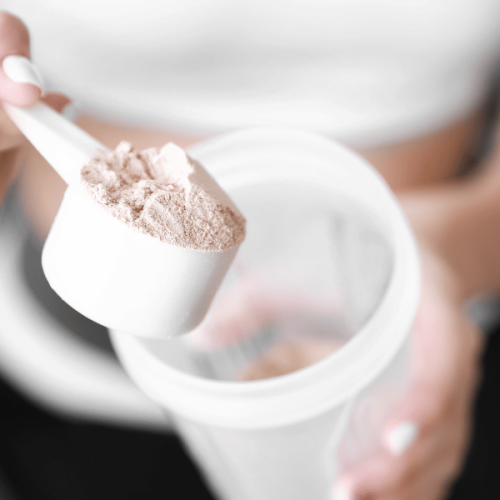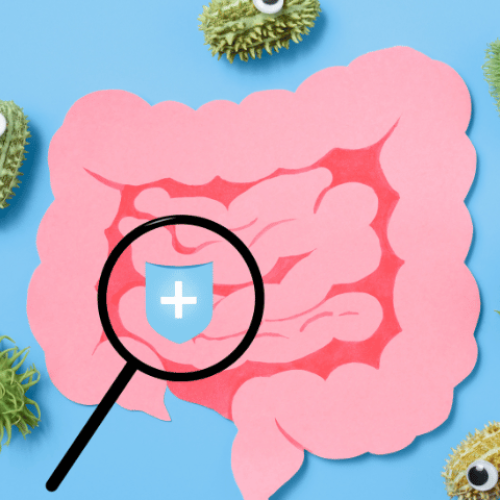Most people think of antioxidants strictly coming from fruits and vegetables, dark chocolate and red wine but many herbs and spices also pack a big antioxidant punch! A little bit goes a long way.
As a registered dietitian, I often emphasize the importance of incorporating a variety of colourful and flavourful foods into your diet to support overall health and well-being. One easy way to add depth and complexity to your meals while boosting their nutritional value is by including spices. These five common spices stand out for their impressive health benefits: cinnamon, paprika, cacao, ginger, and turmeric. Let’s explore the unique properties of each, how they can contribute to your health, and how you can incorporate them into your diet.

Cinnamon: More Than Just a Sweet Spice
Cinnamon comes from the inner bark of evergreen trees. It is more than just a comforting aroma and sweet flavour, it also has impressive health-promoting properties.
Potential health benefits:
Modest Blood Sugar Regulation: cinnamon can improve insulin sensitivity and modestly help regulate blood sugar levels. Studies have shown that cinnamon may lower fasting blood sugar levels and improve insulin response, making it particularly beneficial for individuals with diabetes or insulin resistance.
Antioxidant Properties: Cinnamon is packed with powerful antioxidants that help combat oxidative damage and protect against chronic diseases. By neutralizing free radicals in the body, cinnamon may reduce the risk of conditions such as heart disease, cancer, and neurodegenerative disorders.
Improved Heart Health: Studies suggest that cinnamon may have beneficial effects on heart health by lowering cholesterol levels.
Drawbacks:
While this spice has many favourable aspects, there is a downside to most types of cinnamon: coumarin.
Coumarin is a chemical compound found in several plants, including cinnamon, that can cause liver damage in large doses. However, coumarin is found in significantly smaller doses in Ceylon cinnamon, which means it has the wonderful benefits of cinnamon without this drawback. With all things food and nutrition, dose matters.
Ways to Incorporate Cinnamon into Your Diet
- Breakfast: Stir cinnamon into your morning bowl of cereal or oatmeal, or sprinkle it on top of toast with almond butter.
- Blend it into smoothies: Add a dash of cinnamon to your favourite smoothie recipe for an extra boost of flavour and antioxidants.
- Brew it in tea: Infuse cinnamon sticks in hot water to make a fragrant and soothing cinnamon tea, perfect for cold days or cozy evenings.
- Include it in baking: Enhance the flavour of baked goods such as baked apples, pears, muffins, granola bars, or breakfast cookies.
- Mix it into savoury dishes: Cinnamon pairs surprisingly well with savoury dishes like stews, curries, quinoa, barley salads, or roasted vegetables.

Paprika
Paprika is made from dried, ground red peppers and is packed with essential vitamins, minerals, and antioxidants.
Potential health benefits:
Supports Eye Health: The beta-carotene found in paprika is essential for maintaining healthy vision and may help reduce the risk of age-related macular degeneration and cataracts.
Boosts Immune Function: Vitamin C, one of the key nutrients in paprika, plays a crucial role in supporting immune function and defending the body against infections and illness.
Promotes Skin Health: Vitamin E, another important antioxidant found in paprika, helps protect the skin from oxidative damage caused by UV radiation, pollution, and other environmental stressors.
Anti-Inflammatory Effects: Paprika contains compounds with anti-inflammatory properties that help reduce inflammation in the body, thereby potentially lowering the risk of chronic diseases such as heart disease, arthritis, and cancer.
Ways to Incorporate Paprika into Your Diet
- Season meats and seafood: Sprinkle paprika on chicken, fish, or tofu before grilling, roasting, or sautéing for added flavour and colour.
- Enhance soups and stews: Stir paprika into soups, stews, chili, and sauces to deepen the flavour.
- Elevate eggs and potatoes: Sprinkle paprika on scrambled eggs, omelettes, or roasted potatoes for a flavourful and nutritious boost.
- Add to dips and spreads: Mix paprika into hummus, guacamole, or yogurt-based dips for a deeper flavour and a pop of colour.

Cacao: Indulgence with Benefits
Ways to Incorporate Cacao into Your Diet
Cacao powder is made from ground cacao seeds from the Theobroma cacao tree. While often associated with indulgent treats like chocolate, cacao is actually a nutrient-dense superfood packed with antioxidants, minerals, and flavonoids.
Potential health benefits:
-
Heart Health: The flavonoids found in cacao powder have been shown to have beneficial effects on heart health by improving blood flow, reducing blood pressure, and lowering the risk of cardiovascular disease. Studies suggest that regular consumption of cacao powder may help decrease LDL (bad) cholesterol levels and increase HDL (good) cholesterol levels, promoting overall heart health and reducing the risk of heart disease.
-
Brain Health: Cacao powder is rich in compounds that support brain health and cognitive function. The flavonoids in cacao powder have neuroprotective properties, helping to protect brain cells from damage caused by oxidative stress and inflammation. Additionally, cacao powder contains compounds that increase blood flow to the brain, enhancing cognitive performance, and memory.
-
Mood Enhancement: Indulging in cacao powder can also boost your mood and lift your spirits. Cacao contains compounds such as phenylethylamine (PEA) and anandamide, which are known as “feel-good” chemicals that promote feelings of happiness, pleasure, and well-being. Additionally, cacao powder stimulates the production of serotonin, a neurotransmitter that regulates mood, sleep, and appetite, further enhancing its mood-boosting effects.
-
Antioxidant Power: Cacao powder is one of the richest sources of antioxidants on the planet, surpassing foods like blueberries and açai berries. Antioxidants help neutralize harmful free radicals in the body, protecting cells from damage and reducing the risk of chronic diseases such as cancer, diabetes, and Alzheimer’s disease.
-
Energy Boost: Cacao powder is a natural energy booster, thanks to its rich content of magnesium, iron, and theobromine – a compound that acts as a mild stimulant.
- Smoothies: Blend cacao powder into your favourite smoothie recipe for a rich and chocolatey flavour boost.
- Oatmeal: Stir cacao powder into your morning bowl of oatmeal.
- Baked Goods: Use cacao powder as a substitute for cocoa powder in recipes for baked goods.
- Hot Chocolate: Create a homemade hot chocolate by whisking cacao powder into warm milk with a touch of sugar or sweetener and vanilla extract.
- Energy Bites: Add cacao powder to your energy bite recipes for a boost of health benefits in a satisfying snack.

Ginger: A Zesty Spice with Digestive Benefits
Ginger comes from the underground stem of the ginger plant and is known for its distinct spicy flavour and ability to soothe digestive discomfort.
Potential health benefits:
Relieves Digestive Discomfort: Ginger has long been used as a natural remedy for digestive issues such as nausea, indigestion, and bloating. Its ability to stimulate digestion and promote gastric motility makes ginger a popular choice for alleviating stomach discomfort and promoting overall digestive wellness.
Reduces Inflammation: Chronic inflammation is linked to a wide range of health issues, including arthritis, heart disease, and diabetes. Ginger contains powerful anti-inflammatory compounds that help reduce inflammation in the body, potentially lowering the risk of chronic diseases and promoting overall health and well-being.
Alleviates Muscle Pain: Studies have shown that ginger may help alleviate muscle soreness and reduce pain intensity, thanks to its anti-inflammatory and analgesic properties.
Supports Immune Function: Ginger contains compounds like gingerol and shogaol that have antimicrobial properties, helping to defend the body against harmful bacteria and viruses. By boosting the immune system and enhancing the body’s natural defences, ginger may help prevent infections and promote overall immune health.
Improves Blood Circulation: Ginger has vasodilatory properties, which means it can help relax blood vessels and improve blood circulation throughout the body. By increasing blood flow to tissues and organs, ginger may help reduce the risk of cardiovascular disease, improve cognitive function, and promote overall vitality and well-being.
Ways to Incorporate Ginger into Your Diet
- Fresh Ginger Tea: Brew a soothing cup of ginger tea by steeping fresh ginger slices in hot water with lemon and honey.
- Stirfry and Curry: Add grated or minced ginger to stir-fries, curries, soups, and stews.
- Smoothies: Blend fresh ginger into your favourite smoothie recipe for a spicy kick and added nutritional benefits.
- Salad Dressings: Whisk grated ginger into homemade salad dressings or marinades for a tangy and aromatic flavour boost.

Turmeric: The Golden Spice of Life
A relative of ginger, turmeric comes from the rhizome (root) of a native Asian plant and has been used in cooking for hundreds of years. It owes its vibrant hue to curcumin, its primary bioactive compound, which is responsible for many of its health-promoting effects. In addition to curcumin, turmeric contains other beneficial compounds such as turmerones and gingerols, as well as vitamins, minerals, and antioxidants.
Potential health benefits:
-
Anti-Inflammatory Properties: Turmeric contains powerful anti-inflammatory compounds that help reduce inflammation in the body, thereby potentially lowering the risk of chronic diseases and promoting overall well-being.
-
Antioxidant Activity: Turmeric is rich in antioxidants that help neutralize harmful free radicals and protect cells from oxidative damage. By scavenging free radicals, turmeric may help prevent cellular damage and slow down the aging process.
-
Supports Joint Health: Turmeric has long been used in traditional medicine to alleviate joint pain and inflammation associated with conditions like arthritis. Studies have shown that curcumin, the active compound in turmeric, may help reduce joint swelling and improve symptoms of arthritis, promoting better mobility and comfort.
-
Boosts Brain Health: Emerging research suggests that turmeric may have neuroprotective properties, potentially helping to prevent cognitive decline and protect against neurodegenerative diseases like Alzheimer’s. Curcumin may also enhance mood and cognitive function by increasing levels of brain-derived neurotrophic factor (BDNF), a protein that supports brain health and function.
Ways to Incorporate Turmeric into Your Diet
- Golden Milk: Prepare a comforting cup of golden milk by heating milk (dairy or plant-based) with turmeric, ginger, cinnamon, and a touch of honey.
- Turmeric Tea: Brew a soothing cup of turmeric tea by steeping turmeric powder or fresh turmeric root in hot water with a squeeze of lemon and a drizzle of honey.
- Warm dishes: Add turmeric powder to curries, stir-fries, soups, and stews or any vegetable side dish, like roasted cauliflower.
- Smoothies: Boost the nutritional value of your smoothies by adding turmeric powder or grated fresh turmeric root.
- Turmeric Shots: Create a “wellness shot” by blending turmeric with ginger, lemon juice, and a dash of black pepper for enhanced absorption.

My Opinion
In conclusion, adding these five essential spices – cinnamon, paprika, cacao, ginger, and turmeric – to your diet can not only enhance the flavour and enjoyment of your meals but also provide a TON of health benefits! (Plenty of other herbs and spices do too but today I just focused on these 5).
Variety is key! Aim to consume an antioxidant-rich diet by consuming a variety of colours of fruits and vegetables, whole grains, herbs and spices. Just as we hear “eat the rainbow” for produce, think of the same thing for spices too. Use a variety each day – sprinkle cinnamon on your morning latte, add cacao to your morning smoothie, paprika on your chicken at lunch and turmeric in your dinner stirfry. continue exploring the power of nutrition in your journey of nourishing both body and soul. [If you ever need help, my DM’s are open!]
I want to make one last point before I go, which is that food is not medicine. This is coming from a person who strongly believes in the power of nutrition and the power of food! But food is food and medicine is medicine. It’s essential to recognize that food is not a substitute for medicine. Improving the nutritional quality of your diet can help prevent and/or manage chronic disease and improve your quality of life. However, foods and spices should complement, not replace, medical treatment when necessary.
PLEASE NOTE:
I’d love to know if this was helpful to you! If you have any questions, please DM me on Instagram or comment below.
All blog posts are written for general nutrition improvement and should only be used as a guide. This article is intended for educational purposes only and is not designed to diagnose, treat, prevent or cure any condition. It is not specific advice for any individual. Before adding supplements to your regimen, please speak to your healthcare professional.










